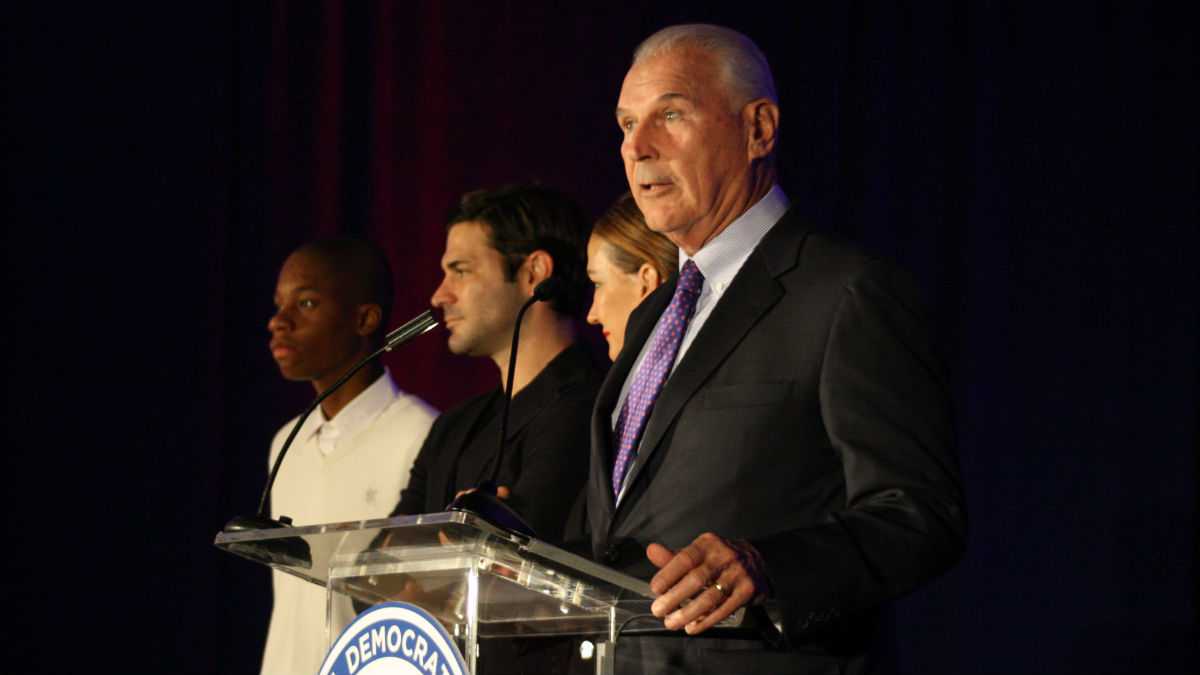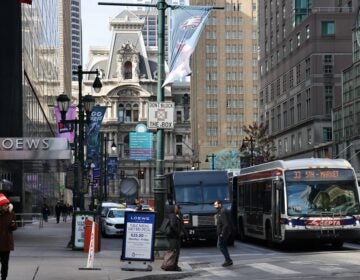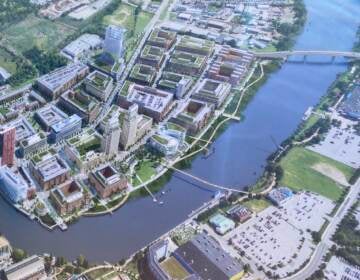Wilmington creates commitee to guide growth and development planning

Wilmington Mayor Mike Purzycki's $162 million budget for fiscal year 2019 doesn't include a property tax increase, but would increase water and sewer fees by 4 percent.(File/WHYY)
The city of Wilmington is taking a new approach to city growth and development by creating a committee that will reach out to the community to guide ideas for the crafting of a 10-year plan for the city.
Delaware law requires all counties and municipalities to produce a comprehensive plan every 10 years to be approved by the city and state. Wilmington currently has a citywide plan and 11 neighborhood plans that detail land-use policy throughout the city.
The new plan, named Wilmington 2028, will combine each neighborhood plan into one strategy for growth and development that also reflects how residents envision their city.
“Much is being done at both the government and neighborhood and grassroots levels to improve the quality of life here in Wilmington,” said Mayor Mike Purzycki, D-Wilmington, in a statement.
“This comp plan process affords us the opportunity to address the challenges our city faces today as well as develop a new vision for tomorrow. This will be a community-driven effort which I would like to see reflect the hopes and priorities of our citizens. This plan will guide future development, and shape where and why public and private investment dollars are spent to make Wilmington a stronger and more prosperous city over the next decade.” A 21-member steering group representing local agencies and organizations committed to improved quality of life in Wilmington will meet with each other and the general public over the next year before making recommendations.
Wilmington residents have been asked to take surveys, and will have an opportunity to attend five public meetings between October and November.
Preliminary recommendations will be worked on during the beginning of next year, and will be submitted to the public for feedback in the spring. The new comprehensive plan will be shared with the city and citizens in the summer of 2018.
Dr. Carrie Gray, managing director of the Wilmington Renaissance Corporation, said she believes this is the first time a city administration has made their comp planning process so inclusive to organizations and residents.
“I think it’s fantastic, I think we need to think big for Wilmington, particularly for the future, while also being realistic about financial capabilities, because obviously ideas cost money, but I think it’s great there’s going to be a broad group of folks around the table who will be able to offer their insights and perspectives,” she said.
Members of the group say they’ll discuss items like neighborhood connectivity, including between downtown and the riverfront, public transport, opportunities for bicyclists, housing options and open space.
Paul Morrill, executive director of the Committee of 100, said the public’s voice will be key.
“The focus is going to be primarily on physical state of the state, planning and development, but you can’t get too far away from how the neighborhoods feel and what they’re like to live and work in,” he said. “I’m sure we will be touching on other issues like safety, but primarily on quality of life for residents and how easy it is for people to invest in Wilmington to do so.”
Sarah Lester, economic development manager of Westside Grows Together, said she believes much can be accomplish when individuals with various expertise share ideas.
“I am most looking forward to an opportunity to take some of the lessons we’ve been learning here in the west side with our community engagement and with our implementation of our revitalization plan and share that with other members of the steering committee, think about what are things we’ve learned throughout our processes, what can be replicated and/or could aid the comprehensive planning strategy,” she said.
“And equally, I’m also interested in learning from my peers at the table what their strategies are and how they’ve been able to interact with the community.”
WHYY is your source for fact-based, in-depth journalism and information. As a nonprofit organization, we rely on financial support from readers like you. Please give today.





